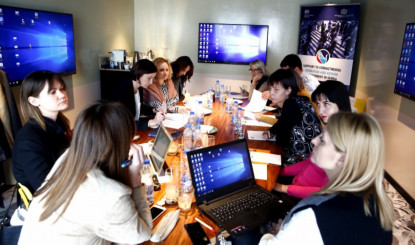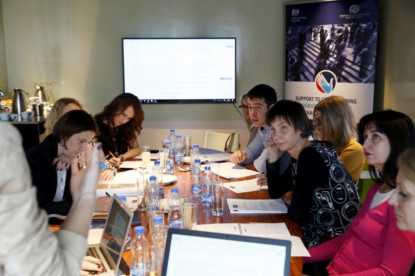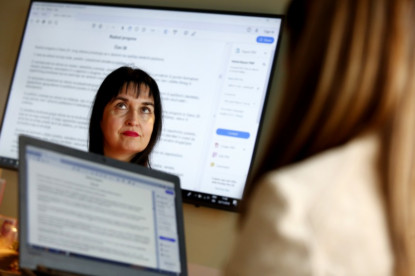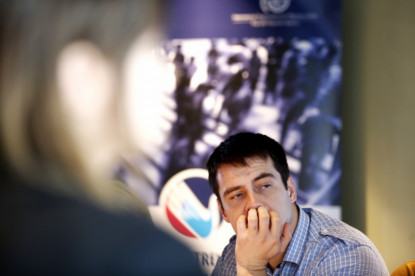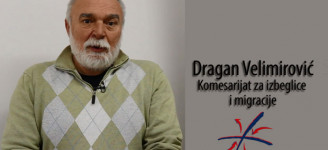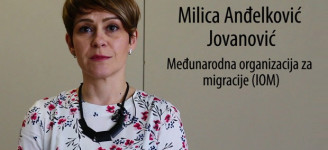A series of workshops improved the quality and work process of the Asylum Office staff
The second part of the workshop "International Standards for the Protection of Asylum Seekers in the Context of Domestic Legislation" held in the Belgrade Envoy Conference Center at the end of December, closed up the activities organized for Asylum Office staff within the second phase of the "Support to strengthening migration and asylum management in the Republic of Serbia".
These workshops, organized by the International Organization for Migration (IOM) with the support of the British Embassy in Belgrade, were led by Ivana Krstić, Ph. D., associate professor at the Faculty of Law of the University of Belgrade, and Ms. Miroslava Jelačić, Legal Analyst from Group 484.
In the first part of the workshop employees of the Asylum Office were acquainted with different categories of migrants, the concept of persecution, the basis for persecution and the basic principles of protection of migrants, while in the second part of the workshop professor Krstić spoke about effective remedies, and Ms. Miroslava Jelačić about the restriction of freedom of movement / deprivation of liberty.
Statements by some of the participants from the Asylum Office testify to the value of all these activities treating novelties introduced in the asylum system of the Republic of Serbia and challenges in their implementation:
Sonja Petronijević: Workshops organized within the second phase of the "Support to strengthening migration and asylum management in the Republic of Serbia" were very important for me and my colleagues from the Asylum Office. The choice of topics was good, and lecturers were competent, flexible and ready to answer all our questions and help resolve our dilemmas. The workshops were dynamic and interactive, so we were very motivated to work. I'm glad I have got answers to certain questions that are important for my work, and my colleagues and I have learned a lot. Sharing experiences, getting acquainted with the new laws, with examples from international practice, and the analysis of concrete cases we encounter will be of great help for our further work.
Katarina Zlokas Ivanović: This was a valuable experience because we treated various topics from different perspectives, and discussed them by examining concrete cases, which was particularly valuable. We have resolved many dilemmas, which is very important taking into account that we do not work in ideal conditions. This project is also valuable because it has confirmed that all actors in the migration management and asylum management system are partners on the same task. We all protect the state from system abuse while protecting migrants from the system. I hope that now some of the problems we have presented, such as the lack of court interpreters and translators, will be better addressed, and that some concrete cases that my colleagues and I have talked about will contribute to improving the practice.
Dražen Grubović: The activities that the International Organization for Migration organized for the Asylum Office will significantly contribute to the improvement of the quality and process of work, and provide better training of our staff in this organizational unit of the MoI of the Republic of Serbia. This applies to the selection of both the topics we treated, and actors who, in addition to Asylum Office staff, took part in these activities. It is positive that in addition to theoretical considerations, much time has been devoted to practical examples and problems that we encounter in our daily work in the Asylum Office. Workshops in which we participated are most useful for our future work and we shall be able to apply the newly acquired knowledge and experience in practice.





